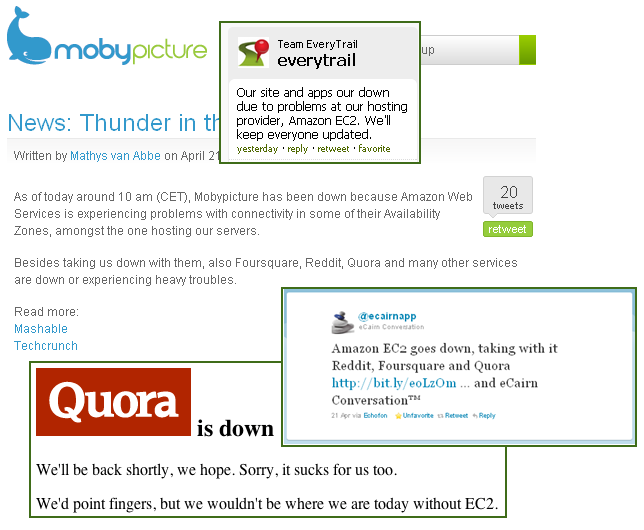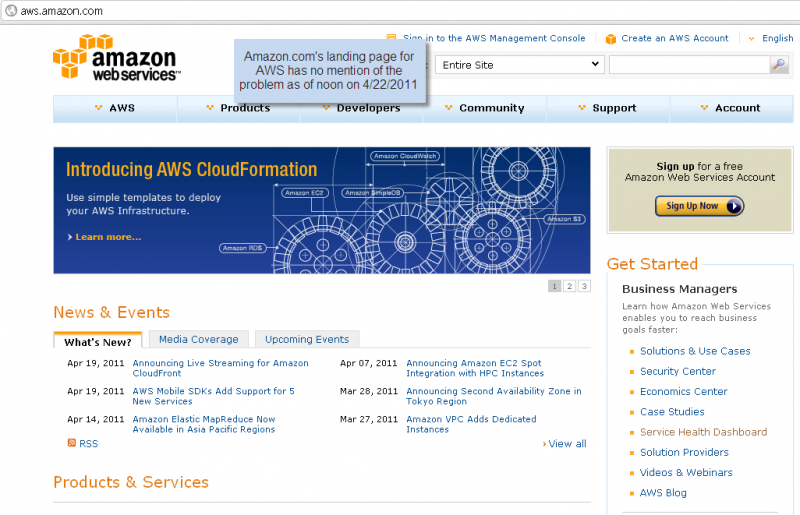Good Proactive Marketing Can’t Fix Problems Like Amazon’s EC2 Outage . . .
. . . but bad reactive marketing can make the problem much worse.
[co-authored by Zachary Reiss-Davis]
As has been widely reported, in sources broad and narrow, Amazon.com’s cloud service EC2 went down for an extended period of time yesterday, bringing many of the hottest high-tech startups with it, ranging from the well known (Foursquare, Quora) to the esoteric (About.me, EveryTrail). For a partial list of smaller startups affected, see http://ec2disabled.com/.
While this is clearly a blow to both Amazon.com and to the cloud hosting market in general, it also serves as an example of how technology companies must quickly respond publicly and engage with their customers when problems arise. Amazon.com let their customers control the narrative by not participating in any social media response to the problem; their only communication was through their online dashboard with vague platitudes. Instead, they allowed angry heads of product management and CEOs who are used to communicating with their customers on blogs and Twitter to unequivocally blame Amazon.com for the problem.

In today’s hyper-compressed and micro-targeted news cycles, it’s not sufficient for a company to handle a crisis by updating a status dashboard. They must be proactively writing blog posts and tweeting on their media properties; bad news like this cannot be buried. Amazon.com’s main landing page and main blog for their cloud offerings (Amazon Web Services) still have no mention of the problem, which makes it hard for observers who want to present a balanced description of the issue to get the information that Amazon.com wants to convey. Additionally, Amazon should reach out to influencers throughout the social graph who are invested in the topic.
For some further reading of web sources that informed this post, I recommend:
- http://www.geekwire.com/2011/amazoncoms-real-problem-outage-communication
- http://justinsb.posterous.com/aws-down-why-the-sky-is-falling
- http://www.computerworld.com/s/article/9216064/Amazon_gets_black_eye_from_cloud_outage
- http://mashable.com/2011/04/22/amazon-cloud-collapse/
- http://bits.blogs.nytimes.com/2011/04/21/amazon-cloud-failure-takes-down-web-sites/
You can continue the discussion on our community, where we are talking about how you would react as a marketer:

Update: An earlier version of this post cited "AnyTrail" as an example of a down website; I meant to cite EveryTrail, a user-generated travel and mapping website.